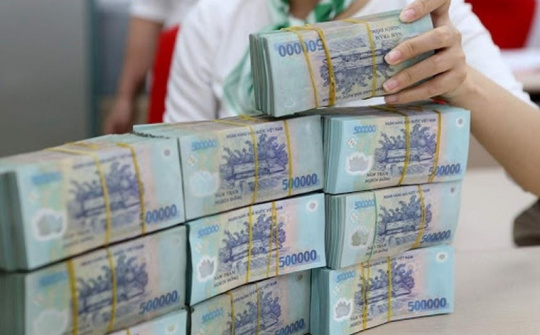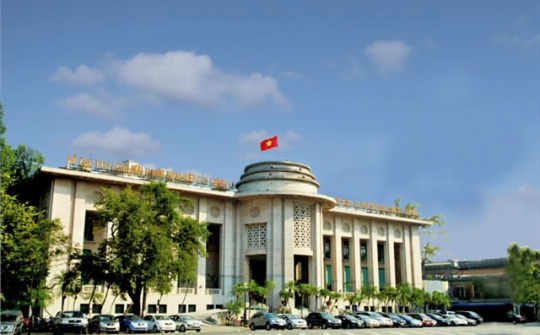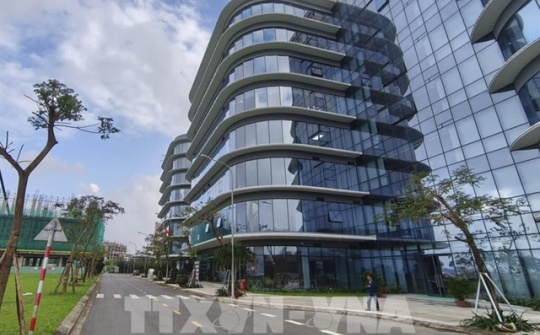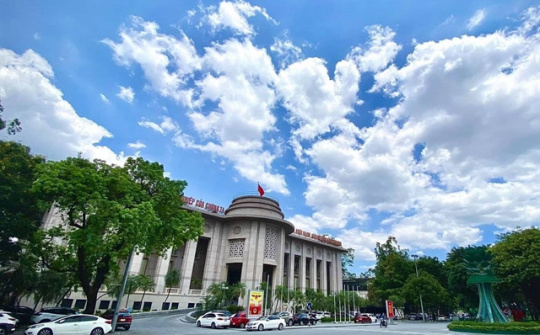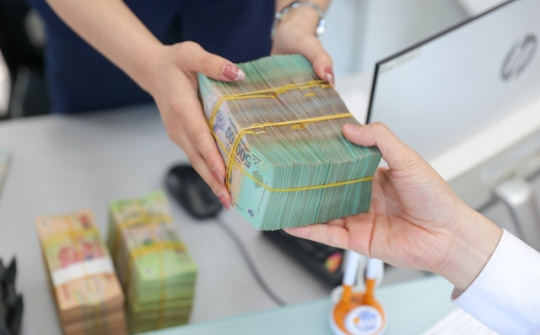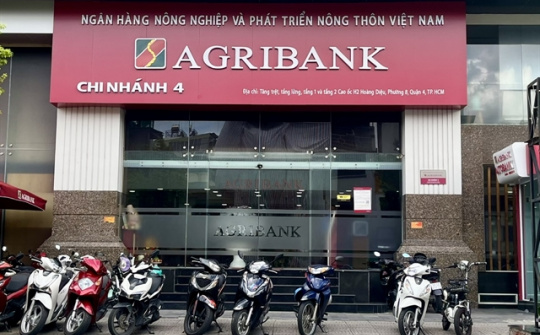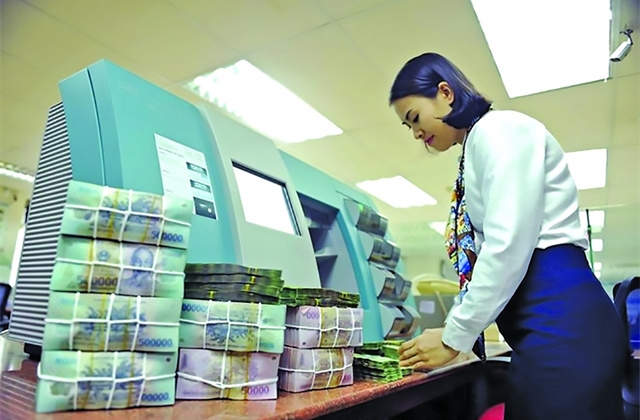In the global market, the US Federal Reserve (Fed)'s decision to cut interest rates by 0.25 basis points earlier this month did not weaken the US dollar, but on the contrary, the dollar index (DXY) increased to nearly 107 points on November 15 this year, the highest level in more than a year.
Analysts forecast that the possibility of dollar appreciation will be very high, after Donald Trump was re-elected as US President and the Fed’s interest rate reduction roadmap slows, which could put considerable pressure on the SBV’s exchange rate policy.

The expected dollar appreciation might put considerable pressure on the State Bank of Việt Nam’s monetary policy.
In fact, the DXY's increase has recently put rising pressure on the USD/VNĐ exchange rate. The SBV increased the central exchange rate of the đồng against the dollar by VNĐ8 on November 15 this year to VNĐ24,298 per dollar.
Director of UOB Việt Nam’s currency trading division Đinh Đức Quang forecast the SBV will not adjust the policy interest rates, such as the refinancing interest rate, rediscount interest rate, deposit interest rate cap and will continue to flexibly use commercial intervention interest rates, such as treasury bill interest rate, open market operation (OMO) interest rate, to maintain the short-term (three months) deposit rate at around 3-4 per cent per year and the long-term (12 months) deposit rate at 5-6 per cent per year.
Ngô Đăng Khoa, director of HSBC Vietnam’s foreign exchange, capital markets and securities services division, also said it will be difficult to further reduce deposit interest rates.
Sharing the same view, banking expert Dr Nguyễn Trí Hiếu, said the deposit interest rate in the market and the SBV’s policy interest rate will be difficult to decrease further in the last months of this year because credit tends to increase strongly in the fourth quarter of 2024, while deposits grow more slowly. At the same time, bad debts in the banking industry is on the rise.
As the room for easing Việt Nam's monetary policy is currently very limited, experts recommended taking advantage of the remaining fiscal space to support economic growth.
Dr Nguyễn Hữu Huân, a lecturer at the HCM City University of Economics, said exchange rate pressure combined with increased credit demand in the last months of the year could cause interest rates to increase.
Although the SBV is pursuing a looser monetary strategy to support the economy, the room for policy change is now very limited. Therefore, support from fiscal policy, especially cutting administrative procedures and increasing public investment disbursement, is very necessary, Huân said.


